The COVID-19 pandemic and its quarantine measures definitely impacted the world's politics and economy. "Things like rising commodity prices, public health, vaccinations, hospitalizations, and mortality rates all generally strongly influence trade," begins Jan Vermeiren of Belgian exotic food importer, Exofi.
"It's also suddenly clear how dependent we are on overseas container transport. Raw material prices are soaring. A shipment from China costs ten times as much as two years ago. Also, there's a huge shortage of computer chips worldwide. They need these to produce things like laptops and smartphones."
"But they use them in the automotive sector, for example, too." As many people began working from home, the demand for laptops and cell phones rose sharply during the lockdown. The shortages even caused companies to temporarily cease production or assembly.

Jan Vermeiren, Exofi
Fruit and vegetable sector left reeling
COVID-19 disrupted everyday life. It affected fruit and vegetable wholesalers too. Customers such as schools, restaurants, and cafes fell away. The open market was restricted, while some buyers stayed away for fear of contamination. Production stopped all over the world. Countries closed their borders, and reefers were in short supply. All that affected the supply of fruit and vegetables. However, fresh fruit and vegetables demand increased. That was from retailers and e-commerce.
"The fruit sector also experienced temporary shortages. Few tree-ripened products were being imported by air. Some growing countries like Thailand and China even closed. They were inaccessible. In 2020, quarantine regulations halted the supply of Thai and Chinese products for ten weeks. So, the price of ginger doubled last year," says Jan.
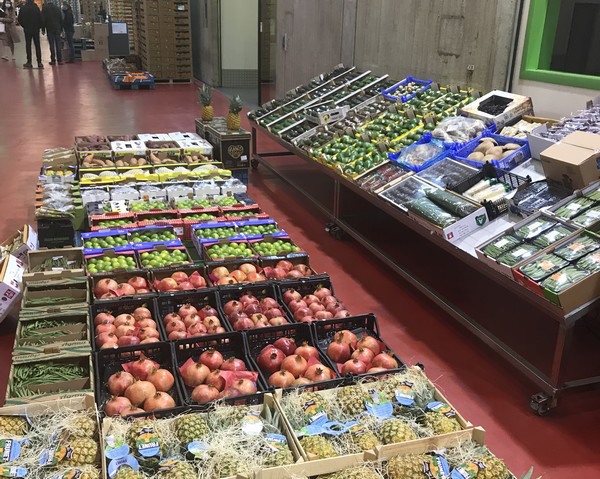
COVID-19 revolution on the exotics market
"There have been few revolutions on the exotics market in recent years. The now two-year-long COVID-19 pandemic is the exception. It's caused Belgian consumers to start buying more exotics. There are three reasons for that. Firstly, there's a growing demand for vitamin C-rich fruit. Kiwi sales clearly demonstrate that. These are true vitamin C bombs. It's said that demand increased by as much as 40% during the pandemic."
Kiwi
The new European kiwi season begins in November and runs until May 2022. Low supplies are expected. The spring frost means yields in some areas, like Italy, will be 50% lower. The total Italian kiwi harvest estimate is at about 250,000 tons. "That's historically low. The green Hayward from France is the most popular kiwi in Belgium. There will be fewer of these too. Many of those growers have switched to yellow kiwi."
European kiwi prices should, therefore, be high in November. But, green kiwi production volumes in other European countries are set to increase in the coming years. Particularly Greece, Spain, Portugal, and Turkey are planting and growing more green kiwi.
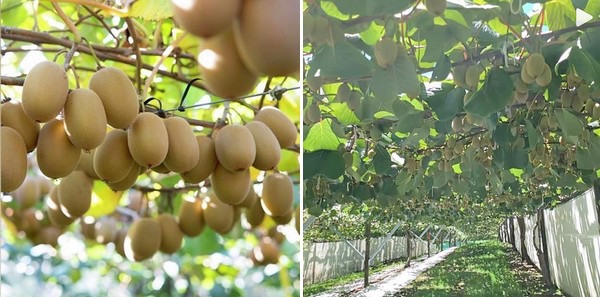
"An exotic vitamin bomb"
"Secondly, consumer knowledge is why they're eating more of certain exotics. More and more people are aware of the healthy properties of certain exotics. These include kiwi, lime, ginger, turmeric, mango, papaya, pineapple, pomegranate, and avocado," Vermeiren goes on.
"During the lockdown, people consumed more kiwis. They contain a lot of vitamin C. But kiwis are healthy in other ways too. They're said to help with digestion and asthma. They strengthen the immune system and are a sleep aid. Kiwi contains vitamins B, E, K, and C."
"And they have minerals such as copper, potassium, magnesium, calcium, and iron. Eating kiwi not only helps prevent blood clots, lowers blood pressure, and protects our DNA. These fruits are also anti-inflammatory and good for your skin. Kiwi, like pomegranates and blueberries, contains lots of antioxidants."
Papaya
"Papaya improves your immune system too. It contains papain, which is a circulatory tonic and promotes digestion. This tropical fruit has a high magnesium content. It's also high in potassium and copper, and vitamins C and A. Papayas are full of antioxidants, so protect against viruses. These also protect your skin, can help detoxify your body and prevent inflammation."
"It offers protection against rheumatism and arthritis too. Also, its high vitamin C levels are good for heart and blood vessels and protect veins. It contains beta-carotene, which lowers the risk of cancer. It has vitamin A, so it helps prevent asthma too. This is also an anti-aging vitamin, which is good for your skin. Vitamin A, too, is an anti-inflammatory and protects you against viruses."
Ginger
"Ginger sales doubled in 2020. This antioxidant promotes gut health and is used as a homeopathic remedy. It's full of potassium and magnesium. It fights diseases and boosts your immune system. It also combats indigestion, flatulence, and constipation. Fresh ginger is a strong muscle and joint pain reliever."
"It's a natural remedy for nausea in pregnancy and can prevent colon cancer. Ginger can speed up recovery, detoxify your body, and is a natural remedy for uterine cancer. Also, it helps with menstrual pain. It protects your upper respiratory tract from ailments such as asthma and bronchitis. You can use it to heal minor burns too."
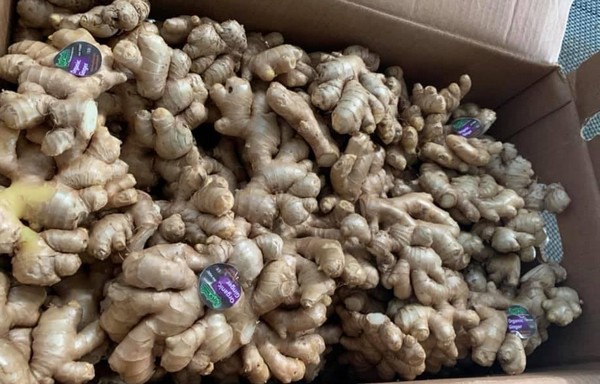
Mango
"Mangoes are called the king of tropical fruit. It's the world's top-selling fruit and originated in India. It's the national fruit in India and Pakistan. It's even included in the Bangladeshi flag. Mangoes are used in the Indian religion and their weddings and ceremonies," says Jan.
"India still grows the most of these. But mangoes are now grown year-round, especially in Peru, Brazil, and Mexico. They are cultivated in Central and South Africa (Senegal, Ivory Coast, Egypt, South Africa, etc.), and in Europe in Spain's Malaga region."
"Mangoes contain 11 health-boosting substances. They have vitamins and minerals. These fruits are a natural medicine that promote overall health. Like papaya, mangoes contain health-boosting enzymes. They also contain fiber that improves digestion and prevents constipation. It's a cancer and cardiovascular disease-fighting substance too."
"This fruit contains a lot of vitamin C, B6, K, and E as well as many minerals and strong antioxidants. Mangoes contain pectin, which assists against prostate cancer. This also regulates digestion and increases appetite. They're rich in potassium, magnesium, and copper. And they can help you recover after strenuous exercise," Jan continues.
"They contain a chemotherapeutic agent. This helps prevent breast cancer, among other things, as well as constipation and heartburn. And it also helps maintain young, healthy skin. These fruits' high sugar content can assist people who are trying to reach a healthy weight. This tasty stone fruit contains beta-carotene and astragalin too. They also stimulate digestion and reduce the risk of colon cancer."
"Mangoes are rich in iron. That helps combat anemia by increasing red blood cell production. This is also beneficial during pregnancy. In China, they make a yin tonic from this fruit. It is used along with other herbal remedies. You can use it to aid in motion sickness, constipation, bleeding gums, coughing, and general nausea. It's also an antipyretic."
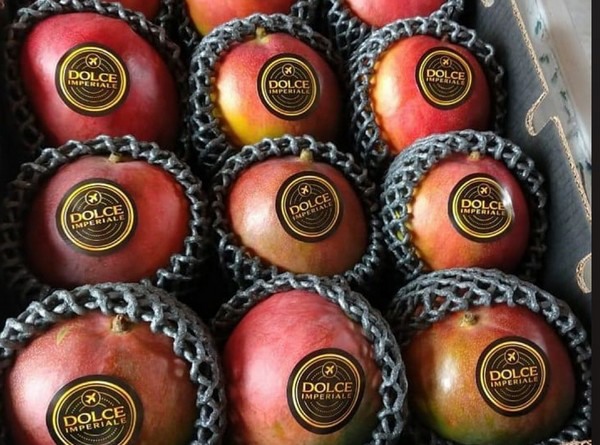
Turmeric
"Turmeric is an anti-inflammatory that naturally combats infections. It lowers the risk of prostate, breast, and colon cancer. It can counteract Alzheimer's disease and soothe arthritic pain. Also, turmeric protects the heart and lowers the risk of diabetes. It has an analgesic effect too. You can use turmeric for, say, headaches, migraines, and painful periods. It can aid in weight loss. But it's also, for example, a means of treating skin diseases."
Avocado, the natural antidepressant
"Ready to eat avocado (RTE) keeps gaining popularity - more so every year - in the exotics market. Hass RTE avocadoes help combat cholesterol. They contribute to a healthy heart and strong blood vessels. They contain lutein, which is good for your eyes. Its vitamin K contributes to healthy skin, a strong immune system, and a functioning digestive system," Jan adds.
"And eating avocado every day could even reduce the risk of depression. Avocadoes contain more than 20 vitamins and minerals. And HDL, or the good fats, which are beneficial against cardiovascular and circulatory problems. These also assist in weight loss. Avocadoes are grown mainly in South America."
Less consumption in the summer
"People generally eat fewer exotics in the summer. On top of that, many events are festivals were postponed due to COVID-19. There are currently many festivals in Belgium that were initially canceled. And there are plenty of smaller events. That's good for catering, sound, and lighting equipment suppliers. These sectors struggled during the pandemic."
"They couldn't work for almost 550 days. Restaurants and hotels reopened in July. And, they're putting more exotic products on the menu. Cresses in a multitude of flavors and combinations, wild mushrooms, cranberries, and other red fruits are all being widely used. The face mask rule is also gradually being voided. People are venturing out more and more."
Sweet potatoes
"The product we sell the most of, by as much as 40% more, are sweet potatoes. They're being used extensively on menus. We import these from Spain, Egypt, the US, Honduras, and Guatemala. A lot of postponed weddings and communions are now being held too. That's why sales of, for example, haricots verts and snow peas are going so well. A lot of Belgians spent their summer vacation in the country. So, fruit and vegetable sales were particularly good at the coast," explains Vermeiren.
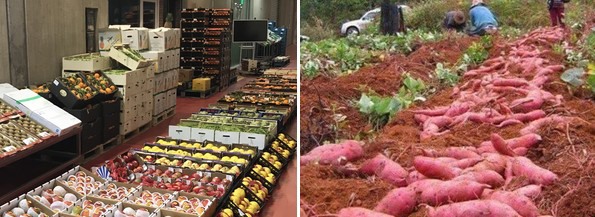
"Both indoor and outdoor sports competitions also started up again last month. Most people eat lunch at such events. So, particularly caterers and takeaway eateries are busier. COVID-19's economic and political implications interlace this fruit and vegetable sales discussion."
"This pandemic has most certainly significantly affected our daily habits. Also, there are events like the World cycling championships on the horizon. This will bring out a million Belgians and people of all countries. They want to watch these competitions live."
Back to normal?
"When will tourists return to the Benelux? That's the question. The hotel industry in large cities has suffered tremendously. American, Chinese, Japanese, and tourists from other countries stayed away. The cruise ships are no longer docking in our country either. Let's hope tourism will be boosted," says Jan.
"We're, after all, vaccination world leaders. Of the total population, 72% of people have had their jab. In some areas, it's even higher, at 86%. Brussels lags with 48%. There, you need a vaccination pass for everything - bars, restaurants, the lot."
And the third reason for Belgians buying more exotics? "There are a lot of cooking programs on TV. Dishes are becoming much more international. That increases sales of exotics and related products. Good examples are Thai and Chinese cuisine. Those use far more ginger, sweet potatoes, and other products. These can replace meat. which is good, since veganism is also on the rise."
"There are more Dutch supermarkets and other retailers in Belgium now. That brings along increasing price competition between the big chains. That, in turn, puts a lot of pressure on traders, packers, logistics providers, and producers. It remains to be seen what effect the weekly rising energy and raw material prices will have on the overall economy."
"And particularly on fruit and vegetable sales and consumption. We don't know how the situation will develop either. Will the hospitality industry be able to return to full capacity? Will tourism return to pre-pandemic-19 levels? I can now put my 32 years of experience in the international fruit sector to good use," Jan concludes.
For more information:
Jan Vermeiren
Exofi Fresh Market
112 Werkhuizenkaai, mag.25-26
B-100 Brussels, Belgium
Tel: +32 (0) 224 31 249
Email: [email protected]
Website: www.exofi.be
